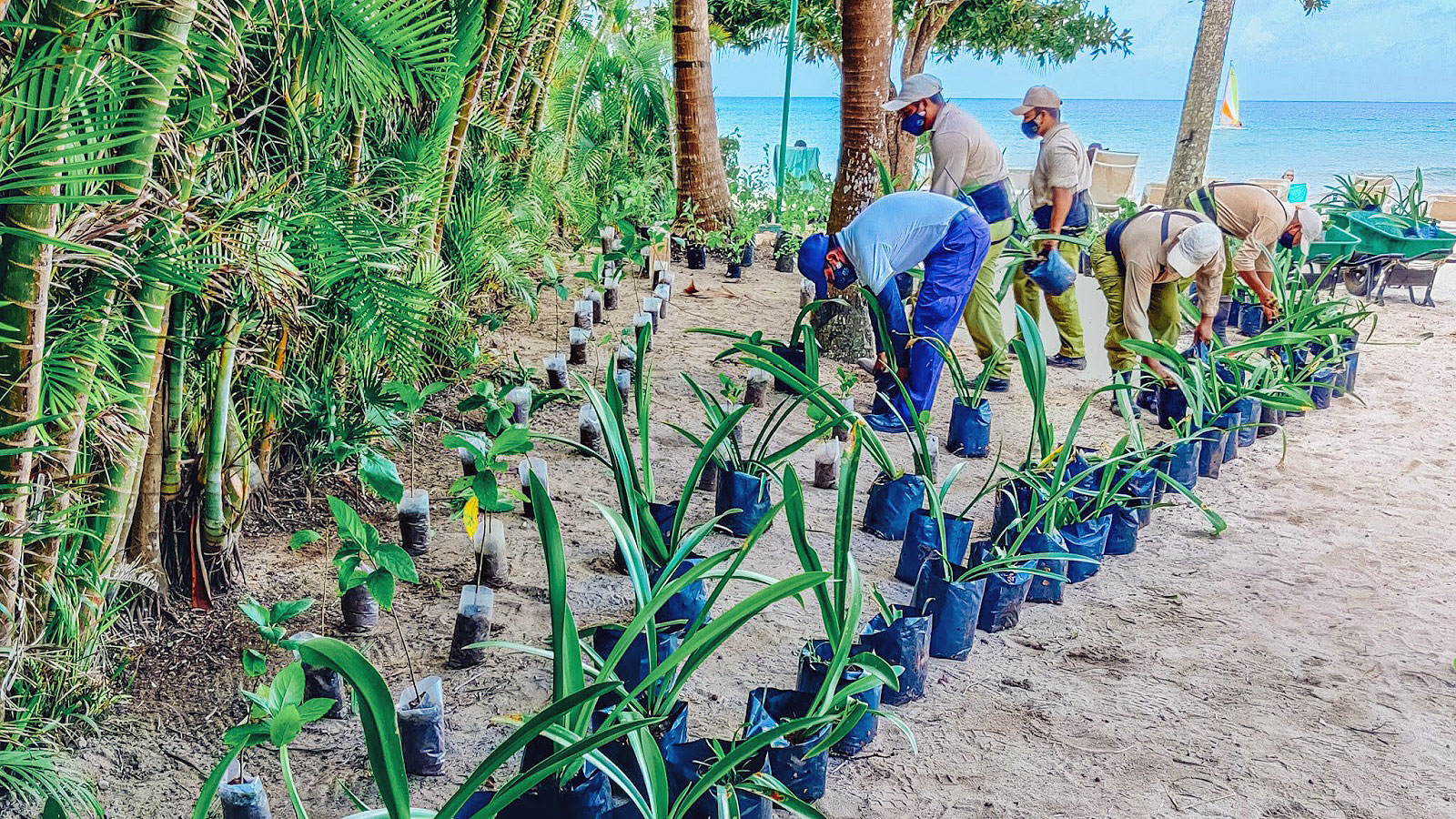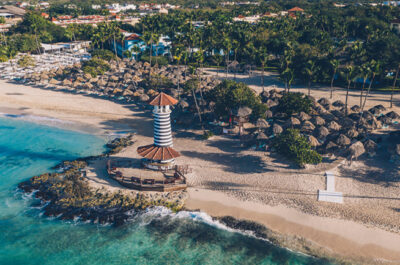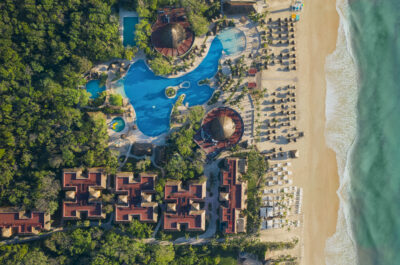Iberostar Hotels & Resorts publishes its “2023 Year in Review” report, detailing the company’s progress towards its sustainability objectives.
LONDON – Iberostar Hotels & Resorts, dedicated to developing a model of responsible tourism, publishes its “2023 Year in Review” outlining its latest sustainability progress achieved through the innovative work within Wave of Change. The Mallorcan hotel group reports across five key pillars including; circular economy, blue foods, nature-based solutions, climate action and destination stewardship.
Gloria Fluxà, Vice-Chairman and Chief Sustainability Officer, Iberostar Group outlines: “Our commitment to responsible tourism leads our business on a transformative journey. The successful implementation of our vision requires a 360-degree approach, embedding sustainability within every process, aligning with nature, and mitigating risks. For instance, implementing Nature-Based Solutions like restoring coral reefs or mangroves to mitigate hurricane impact. Collaborations such as these, can aid in developing proactive solutions, partnering with local governments can address major infrastructure challenges, and involving local communities can further holistic tourism. Through collective collaboration, our aim is to inspire positive change, so that we create a future where people and the environment flourish.”
Emissions reduction and commitment to green hydrogen
Iberostar is moving towards carbon neutrality by 2030, a milestone it aims to reach twenty years ahead of the global target set by the industry. In 2023, compared to 2019, it has managed to reduce its Scope 1 and 2 emissions by 12% globally: 6% in the AME region and 32% in EMEA.
Similarly, the hotel chain has also reduced its energy consumption (kWh) by 6.5% compared to 2019, a particularly positive percentage in the EMEA region, where it amounts to 6.64%. Hotels in Montenegro (12.72%), Morocco (10.97%) and the Canary Islands (Spain) (8.18%) have achieved some of the largest reductions through the implementation of best practices in hotels and key investments.
Electrification is another cornerstone of Iberostar’s decarbonization strategy, as it contributes to both decarbonization within its operations, and energy efficiency, due to the higher efficiency of heat pumps compared with boilers. As of 2023, all our hotels in Montenegro (three) and one hotel in Spain are fully electric. In 2024, one hotel in AME and another in EMEA will also be 100% electrified. In addition, as an intermediate step towards full electrification, this year will see the partial electrification of another eight hotels globally.
Less waste to landfill at Iberostar hotels
In 2023, the hotel chain worked to reduce the overall percentage of waste in its hotels, waste sent to landfill and waste derived from food. Specifically, through its 3R’s team and different initiatives, the company worked hard to reduce waste sent to landfill by 56% relative to its 2021 baseline.
83% of the seafood consumed at Iberostar hotels comes from responsible sources
The data in the report published by Iberostar Hotels & Resorts shows progress towards the goal of ensuring that 100% of fish and seafood served in Iberostar hotels is responsible, having achieved that 83%, five percentage points above last year’s data.
This achievement also contributes to the broader goal of promoting environmental stewardship in the seafood industry where the company is working with fishing communities in specific destinations to achieve a sustainable local approach. For example, the Aliança Kirimurȇ in Brazil.
Eight coral nurseries for the conservation of the environment
In 2023 Iberostar incorporated two new coral nurseries in the Dominican Republic. As a result, the company now has eight nurseries – four in the country, three in Mexico and one in Jamaica: to continue studying the behavior and adaptation of these species against climate change, in order to establish a genetic bank of coral species.
Simultaneously, since restarting Iberostar’s mangrove restoration program in 2021, the company has planted more than 16,100 mangroves of different varieties in the Dominican Republic. In addition, the chain has continued to implement local initiatives and collaborations to promote dune restoration in Mexico.
Challenges for the future
Iberostar also identifies some of challenges it faces in the near future as it works towards the goals of its 2030 Agenda:
- Offset remaining emissions that are not easily achievable through decarbonization through innovative carbon capture projects, with a focus on blue carbon initiatives. Projects aim to prioritize biodiversity conservation, sustainable ecosystem management and community inclusion for their economic benefit.
- Continue with the electrification of its hotels to amplify the innovation projects it is carrying out.
- Create quality partnerships throughout the value chain to continue to reduce Scope 3 emissions, including aligning with its suppliers on carbon measurement standards, building relationships that foster collaboration with key suppliers, with the aim of generating tangible leaps of progress rather than attempting to dilute smaller actions across its value chain.
- Encourage collaboration and innovation with other companies to jointly address environmental challenges in order to build strong connections that allow us to maximize our impact at the destination.
Vicky is the co-founder of TravelDailyNews Media Network where she is the Editor-in Chief. She is also responsible for the daily operation and the financial policy. She holds a Bachelor's degree in Tourism Business Administration from the Technical University of Athens and a Master in Business Administration (MBA) from the University of Wales.
She has many years of both academic and industrial experience within the travel industry. She has written/edited numerous articles in various tourism magazines.
































































































































































































